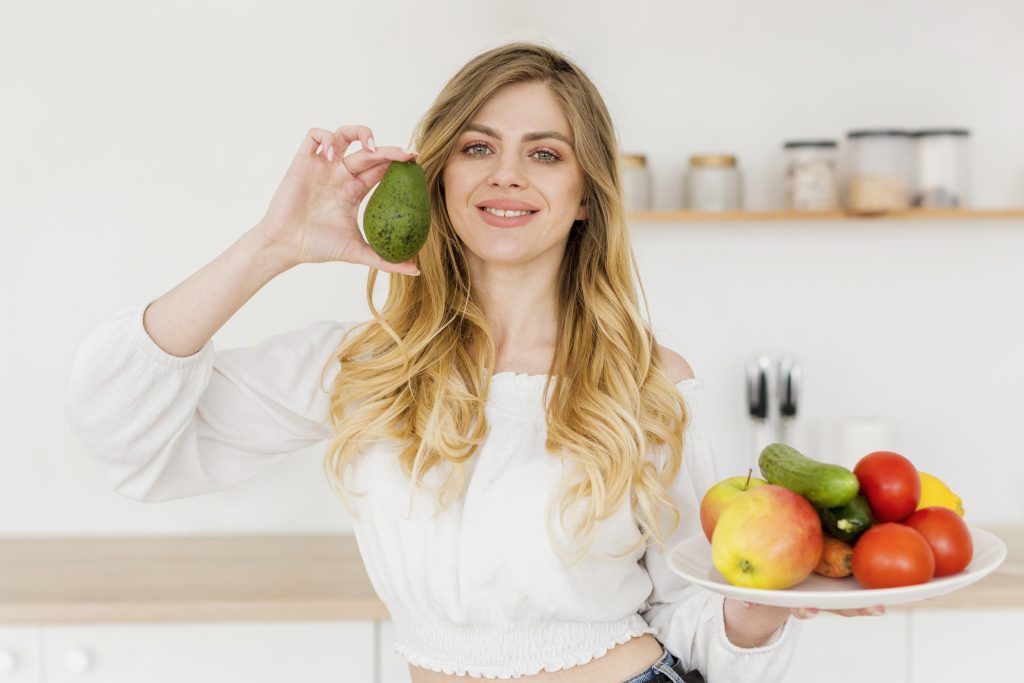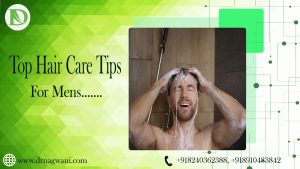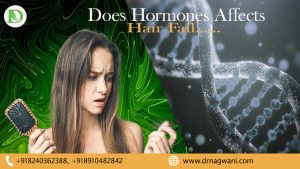Table of Contents
Introduction
Hair is more than just a style statement; it reflects our overall health. The connection between nutrition on hair fall is profound, with nutritional choices playing a pivotal role in maintaining those luscious locks. In this article, we’ll explore the intricate relationship between what we eat and the health of our hair.
Understanding Hair Growth
Understanding hair growth is crucial for maintaining healthy locks. Hair undergoes a continuous cycle of growth, rest, and shedding, influenced by factors like genetics and hormones. Nutrition plays a pivotal role in this cycle, impacting the overall health of our hair. A well-rounded diet addressing vitamin and mineral deficiencies supports a balanced growth cycle. From the role of vitamin A in sebum production to the significance of iron and zinc, these nutrients contribute to strong, vibrant hair. By comprehending the intricacies of hair growth, individuals can make informed choices to nurture their hair from within.
Impact of Nutrition on Hair
Nutrition plays a pivotal role in the health of our hair. The impact of a well-balanced nutrition on hair is profound, influencing its growth, strength, and overall vitality. Essential nutrients like vitamins A and E, B-vitamins, minerals such as iron and zinc, and adequate protein contribute to preventing hair fall and promoting a healthy scalp. A deficiency in these nutrients can lead to various hair issues, underscoring the importance of mindful dietary choices in maintaining luscious locks. Understanding the connection between nutrition and hair health is key to fostering vibrant and resilient strands.
Essential Nutrients for Hair Health
Ensuring a nutrient-rich diet is paramount for vibrant and resilient hair.
Vitamin A: Found in carrots, sweet potatoes, and spinach, Vitamin A supports sebum production, keeping the scalp moisturized.
Vitamin E: Abundant in nuts, seeds, and leafy greens, this antioxidant protects hair cells from damage, promoting a healthy scalp.
B-vitamins: Vital for preventing hair loss, Biotin and other B-vitamins are present in whole grains, eggs, and leafy greens.
Incorporating these essential nutrients into your daily meals not only fosters a healthy mane but also contributes to overall well-being. Make these elements a staple in your diet for luscious locks from within.
Minerals for Stronger Locks
Minerals play a pivotal role in fortifying your locks and preventing hair fall. Iron, a vital mineral, promotes robust hair growth and can be sourced from lean meats and fortified cereals. Zinc, another essential mineral, contributes to hair tissue repair and growth, found abundantly in seafood, nuts, and seeds. Ensuring an adequate intake of these minerals through a balanced diet is a proactive step toward stronger, healthier locks. Incorporate iron and zinc-rich foods into your meals to nourish your hair from within and maintain its strength and vitality.
Protein Power for Hair

Protein is the building block of hair, playing a pivotal role in its structure and strength. Adequate protein intake is crucial for preventing hair breakage and promoting growth. Lean meats, dairy products, beans, and lentils are excellent sources of protein that contribute to maintaining healthy locks. Including these protein-rich foods in your diet ensures that your hair receives the essential nutrients it needs to stay strong, resilient, and vibrant. Make protein a priority, and watch as your hair transforms into a shining testament to the power of a well-balanced diet.
Healthy Fats and Hair Fall
Ensuring a healthy fat intake is paramount for combating hair fall. Omega-3 fatty acids, found in fatty fish, flaxseeds, and walnuts, provide essential nourishment to hair follicles, promoting strength and vitality. These fats contribute to a well-moisturized scalp, preventing dryness and reducing the risk of breakage. Incorporating sources of healthy fats, like avocados, into your diet enhances the overall health of your locks. By prioritizing these nutrient-rich fats, you not only support hair growth but also contribute to a glossy and resilient mane. Remember, a well-nourished scalp is the foundation for vibrant and beautiful hair.
Hydration for Hair
Proper hydration is vital for maintaining healthy hair. Dehydration can lead to dryness, making hair more susceptible to breakage and split ends. Water plays a crucial role in nourishing hair from within, promoting elasticity and shine. It helps transport essential nutrients to the hair follicles, supporting the overall health of the scalp. Ensure you’re drinking an adequate amount of water daily to keep your hair hydrated and vibrant. Incorporating hydrating foods, such as water-rich fruits and vegetables, further enhances moisture retention for luscious locks. Remember, a well-hydrated body reflects in the vitality of your hair.
Superfoods for Luscious Locks
Superfoods play a pivotal role in promoting luscious locks by providing essential nutrients. Acai berries, rich in antioxidants, nourish hair follicles, enhancing growth. Chia seeds, packed with omega-3 fatty acids, contribute to scalp health and prevent dryness. Quinoa, a protein powerhouse, strengthens hair strands, reducing breakage. These superfoods, when incorporated into your diet, deliver a potent blend of vitamins, minerals, and antioxidants, fostering vibrant and resilient hair. Including a variety of these nutrient-dense foods ensures your hair receives the care it deserves, from the inside out. Elevate your hair care routine with the power of superfoods.
Meal Planning for Hair Care
In the realm of hair care, strategic meal planning becomes a potent ally. Crafting meals that encompass a balanced blend of protein, vitamins, and minerals is paramount for promoting optimal hair health. Consider a breakfast featuring a spinach and feta omelet, a lunch graced with a quinoa salad, and a dinner adorned with grilled salmon alongside sweet potatoes. This intentional fusion ensures a steady supply of essential nutrients vital for hair growth and resilience. Meal planning for hair care transcends mere sustenance, evolving into a proactive approach to nourishing your locks from within.
Lifestyle Habits and Hair
Way of life propensities altogether influence hair wellbeing. Persistent pressure is a significant supporter of hair fall, provoking the requirement for stress-the executives exercises like yoga or reflection. Customary activity advances blood course, helping the scalp and generally hair condition. Satisfactory rest is significant for the body’s maintenance processes, including those connected with hair development. Also, keeping away from extreme intensity styling and utilizing delicate hair care items can forestall harm. Adjusting these way of life factors upgrades the possibilities keeping up with dynamic and strong hair, underscoring the comprehensive way to deal with hair care.
Common Misconceptions About Diet and Hair
Common misconceptions about diet and hair often lead individuals astray. One prevalent myth is that eliminating specific food groups magically transforms hair health. Contrary to this belief, no singular food guarantees a cure for baldness. Additionally, the notion that external treatments alone can foster healthy hair overlooks the crucial role internal factors play. Understanding the intricacies of nutrition and hair requires dispelling such myths, emphasizing the importance of a holistic approach. True hair health results from a well-rounded diet, hydration, and lifestyle, challenging the misleading beliefs that a quick fix lies in exclusionary diets or superficial treatments.
DIY Hair Masks and Treatments
Pamper your locks with natural DIY treatments. An avocado and honey mask offers deep hydration, leaving hair silky and moisturized. For a protein boost, try a yogurt and egg mask, promoting strength and resilience. These homemade remedies, rich in nourishing ingredients, are a cost-effective way to enhance your hair care routine. Incorporate them weekly for noticeable improvements in texture and shine. Embrace the simplicity of these DIY solutions and let your hair revel in the goodness of nature.
Conclusion
In conclusion, the relationship between diet and hair fall is undeniable. Making conscious choices to include nutrient-rich foods, staying hydrated, and adopting a healthy lifestyle can contribute to vibrant and resilient locks. Remember, the key to healthy hair goes beyond external treatments; it starts from within.



